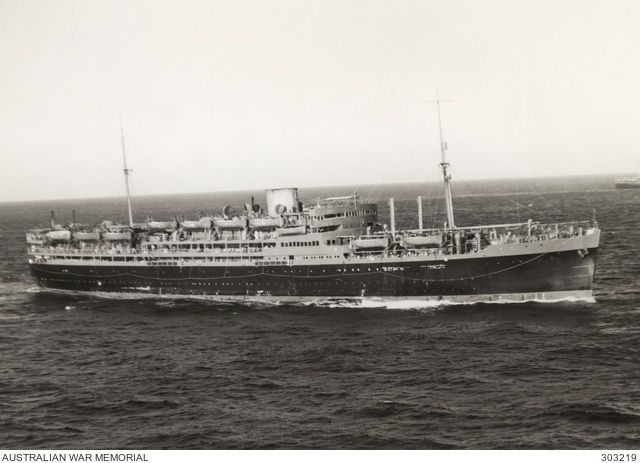The youngest 'Dunera' Italian
- Joanne Tapiolas
- Mar 20, 2025
- 3 min read
Pietro [Peter] Beschizza was the youngest Dunera Italian. He was born Pietro Andrea Beschizza on the 9th January 1922 at Pontremoli (Massa and Carrara) Italy. At 18 years of age, Pietro survived the sinking of the Arandora Star by clinging to floating objects until he could get onto an improvised raft with four other Italians, two German internees and one British crew.
A waiter working for his father in a London restaurant, he listed on his Australian documents his mother Anna Maria Beschizza of 45 Pavilion Road, London as his next of kin.
Pietro Beschizza had arrived in England when he was nine years old and was educated at St Mary’s Catholic School, Fulham. He had joined the ‘Gioventu Fascista’ in 1935 and participated in sports’ meetings.
His associates in Tatura Camp were Nicola Cua and Luigi Beschizza.
Intelligence Office believed that because of his age, he was easily influenced politically by fascist supporters in camp.
In the main, Pietro was a constant worker in the compound kitchen at Tatura Camp and he was considered to be industrious, a clean-cut type rather refined, cheerful, very decent type, one of the best in the compound, but young and impressionable.
Pietro was involved in sport and also wrote an article for the 1940 Christmas edition of the Gioventu, the Tatura Camp Publication as well as being part of the organising group. His reflections on Christmas are poignant.
Due Natali
Pietro Beschizza
Quando sono stato internato avevo la speranza di essere libero e a casa con la mia famiglia per natale. Ma invece non e cosi: mi hanno imbarcato su una nave e dopo cinquanta cinque giorni mi trovai in Australia con i miei due cento camerati. L’anno scorso ho fatto natale a casa con tutta la mia famiglia. La sera sono stato invitato alla casa d’un amico e li ho ballato, bevuto e mi sono divertito senza pensare che il natale prossimo lo passerei in un campo in Australia. Qui in questo campo, non ci saranno delle ragazze o delle bottiglie d’apprire. Ma io starei senza bottiglie or ragazze per essera a case con la mia famiglia e i miei amici il natale prossimo.
Two Christmases
When I was interned I had the hope of being free and at home with my family for Christmas. But instead it wasn't like that: they put me on a ship and after fifty-five days I found myself in Australia with my two hundred comrades. Last year I had Christmas at home with my whole family. In the evening I was invited to a friend's house and I danced, drank and had fun there without thinking that next Christmas I would spend it in a field in Australia. Here in this camp, there won't be any girls or bottles to open. But I would be without bottles or girls to be at home with my family and friends next Christmas.
While in Loveday Camp from the 10th December 1941 to the 9th September 1942, Pietro was awarded first place for an 800 metre race held at Loveday Camp. Dr. GN Zezi, who signed the certificate was a camp doctor and also sports master for the Dunera Italians.
On the 16th August 1943, Pietro applied to Major Layton for a transfer to an internment camp in the UK. On the 14th January 1944, this application was refused. On the 8th March 1944, he was sent to Loveday Camp 14D, most probably because of his assumed fascist leanings, but he was returned to Tatura Camp on the 2nd August 1944 and on the 8th August 1944 he was released to the Civil Aliens Corps for forestry work.
On the 16th June 1990 he was bestowed the honour of Cavaliere al Merito della Repubblica Italiana. He made contributions to the books Star of Shame and The Arandora Star Tragedy 75 years on as a way of the honouring those who died during the sinking of the Arandora Star.
Pietro returned to England on the SS Athlone Castle, arriving in Liverpool, England on the 29th March 1945 as a ‘released internee’.




Comments